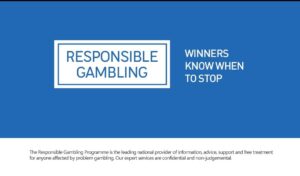Gambling addiction is more than just a financial issue—it's a complex psychological condition that can deeply impact an individual's mental and emotional well-being. While many view gambling as a harmless pastime, for some, it becomes an uncontrollable compulsion with devastating consequences. This article explores how gambling addiction affects mental health, the warning signs to watch for, and how people struggling with this condition can seek help and begin healing.
The Emotional Rollercoaster of Gambling Dependency
For those battling gambling addiction, emotional highs and lows become a part of daily life. The thrill of winning can provide a temporary mood boost, similar to a drug-induced high. However, losses bring intense feelings of shame, guilt, and regret. Over time, this cycle leads to emotional exhaustion, mood swings, and increased sensitivity to stressors.
People often chase their losses—gambling more in an attempt to recover lost money. This behavior escalates the emotional damage and reinforces a harmful loop of dependency.
Anxiety and Stress: Constant Pressure to Win
The pressure to win, repay debts, or hide losses from loved ones often causes significant stress and anxiety. Problem gamblers may feel constantly on edge, fearing judgment or financial ruin. This persistent tension disrupts sleep, appetite, and concentration, which worsens overall mental health.
Many individuals with gambling addiction also develop social anxiety. They may withdraw from relationships and avoid gatherings to prevent questions about their finances or behavior. This isolation only deepens emotional pain.
Depression and Hopelessness
Depression is one of the most common mental health issues linked to gambling addiction. After prolonged losses, individuals may feel like their situation is hopeless and that they have lost control of their lives. Feelings of worthlessness and low self-esteem are typical, especially when a person believes they've let their family or community down.
In severe cases, problem gamblers may experience suicidal thoughts or engage in self-harm. Studies have shown that gambling addicts have higher suicide attempt rates than the general population, making mental health support critical.
PTSD and Trauma: Gambling as a Coping Mechanism
Some individuals turn to gambling as a way to cope with past trauma or PTSD (Post-Traumatic Stress Disorder). Veterans, abuse survivors, and individuals with other traumatic experiences may use gambling to escape their painful memories or intrusive thoughts. Unfortunately, this avoidance strategy can develop into a new disorder while worsening the original trauma.
There's also a reverse effect—gambling itself can be traumatic, especially when it leads to extreme financial distress, relationship breakdowns, or legal consequences. This ongoing trauma fuels the addiction, keeping the person trapped.
Co-Occurring Disorders: ADHD, Alcohol Use, and More
Gambling addiction rarely exists in isolation. It often co-occurs with other mental health conditions like ADHD, anxiety disorders, bipolar disorder, and substance abuse. The impulsivity of ADHD, for example, may increase the likelihood of compulsive betting.
People struggling with addiction may also use alcohol or drugs to cope with guilt and stress, creating a dangerous mix of behavioral and chemical dependencies that require integrated treatment.
Impact on Relationships and Social Life
Mental health is closely tied to our relationships and social support systems. Problem gambling often leads to broken trust, frequent arguments, secrecy, and financial strain in families. Friends and loved ones may feel betrayed, while the person struggling feels misunderstood and alone.
This isolation can further erode mental well-being, reinforcing the addiction. Rebuilding these relationships is possible, but it requires honesty, support, and professional help.
Seeking Help: A Path to Recovery
The first step to healing is acknowledging the problem. Many organizations, including Responsible Gambling Kenya, offer confidential assessments and therapy for individuals and families impacted by gambling.
Treatment options may include:
• Cognitive Behavioral Therapy (CBT)
• Individual and group counseling
• Psychiatric support for co-occurring disorders
• Helplines and peer support groups
Recovery is not a straight line, but with the right support and a strong network, healing is possible.
You Are Not Alone
Gambling addiction is a serious mental health issue that affects thousands of Kenyans every year. Its impact goes far beyond money, often damaging the emotional and psychological health of those involved. If you or someone you love is struggling with problem gambling, know that help is available—and recovery is within reach.





